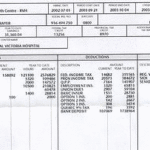 Loan modifications and the relative casualness with which they are documented scare me.
Loan modifications and the relative casualness with which they are documented scare me.
Given the glaring problems that loan servicers have in accounting for payments made by borrowers and expenses charged to loans, the idea that those same people at the servicer are making good records about modifications seems naive.
Consider that the same people who lose your loan modification application four times in three weeks are the people expected to make a permanent record of the change in your loan terms. Often we’re talking about tens of thousands of dollars and loans that are expected to run for decades.
We see glimmers of this problem in bankruptcy courts now, where one part of the bank has entered into a loan modification while another part of the same bank has hired a lawyer to pursue foreclosure on the borrower’s home.
It gets worse
But my conversation with mortgage lawyer Pamela Simmons yesterday was scarier still. She told of a client whose Countrywide loan had been paid off as part of a recission of the transaction whose house was now in a foreclosure proceeding on the loan that was paid in full!
Mind you, when a loan is paid off, the deed of trust that secured that loan is released and the release is recorded. There’s a permanent and official record that the home is no longer security for that loan. But yet this is happening.
California is a non-judicial foreclosure state, so there is no judge involved to whom the homeowner could explain why Bank of America, Countrywide’s purchaser, has no right in law to initiate a foreclosure.
I’m sure we will see this kind of disaster more and more if/when the real estate market recovers enough that houses with modified loans are actually sold in conventional sales. What kind of record will exist of the change in terms? Will the forgiven late charges still appear on the servicer’s accounting?
If you have obtained a loan modification, my charge to you is to save in your very safest place a copy of the loan modification agreement. Save monthly statements that are consistent with the loan mod, and protest immediately and repeatedly if you get statements from the lender which reflect the old terms.
I’m not sure this is all you can do, or enough to head off future debacles, but it’s a start.
Image courtesy of Cayusa








Cathy,
you raise some very valid concerns regarding the loan servicer’s competency or
lack thereof. One of the biggest issues that I think you did not get to touch
upon yet is that these banks seem to never send back the fully executed loan
modification document. Of course the bank will not honor a loan mod or even
trial plan until the homeowner signs the contract, but just try to request the
agreement with an authorized person from the bank.